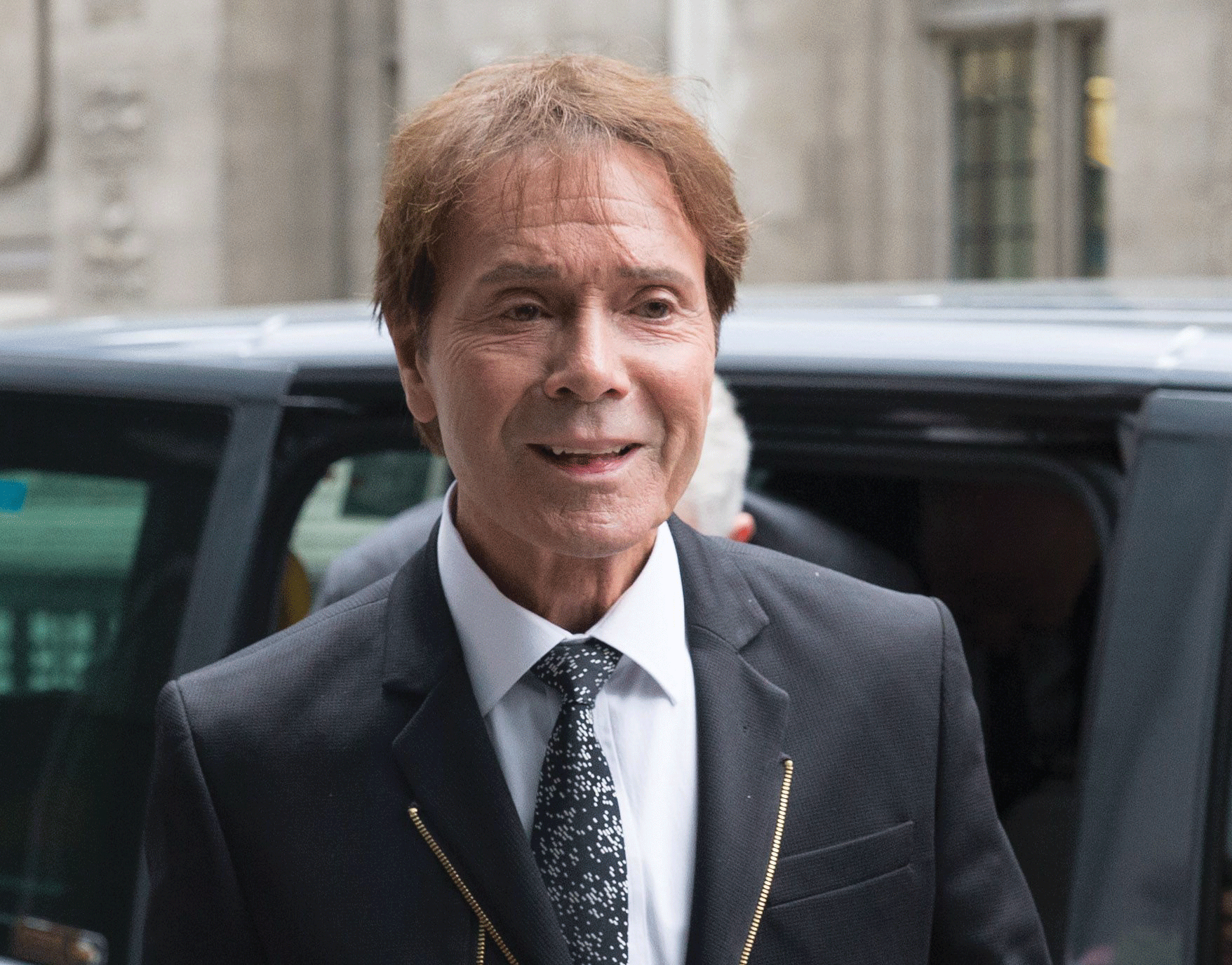Sir Cliff Richard has won a privacy case against the BBC over its ‘somewhat sensationalist’ coverage of a police raid of his home. The entertainer was awarded £210,000 in damages in a High Court ruling this morning.
Richard, who sued both the BBC and South Yorkshire Police, claimed the BBC’s reporting of the 2014 raid was a ’serious invasion’ of privacy. He was never arrested or charged over the alleged offences.
Handing down his judgment in Sir Cliff Richard v BBC and South Yorkshire Police, Mr Justice Mann said: ‘I have found that this was a serious infringement of Sir Cliff’s privacy rights, in terms of what was disclosed, in terms of the manner of disclosure and in terms of the effect on Sir Cliff.’
Mann found that ‘Sir Cliff had privacy rights in respect of the police investigation and the BBC infringed those rights without a legal justification.’
Richard sued SYP for breach of privacy and under the Data Protection Act 1998 after the police disclosed that he was under investigation and the date, time and place of an intended search of his home. Before the trial SYP had already admitted liability and agreed to pay £400,000 in damages plus costs. He sued the BBC on the same grounds for publicly disclosing the facts and covering the search in various broadcasts.
The case revolved around subsequent dealings between the BBC and SYP. The BBC claimed the police volunteered the information whereas Richard claimed SYP was ‘manoeuvred into providing it’ from a fear and implicit threat that the BBC would or might publish news of the investigation before the police were ready to conduct their search.
‘As my judgment reflects, I have accepted the SYP/Cliff Richard case on this point, and rejected the BBC’s case,’ Mann wrote. He added: ‘I find that Sir Cliff had privacy rights in respect of the police investigation and that the BBC infringed those rights without a legal justification. It did so in a serious way and also in a somewhat sensationalist way.’
Nicola Cain, partner at RPC, warned that the media will now have to ‘walk on eggshells’ when reporting on police investigations.
She added: ‘The judge found that even if an investigation involves public activity, and reporting on it is in the public interest, an individual can still have a reasonable expectation of privacy in not being identified. This goes against several previous decisions which recognised the importance to the media of identifying individuals in coverage.’
Emma Woollcott, head of reputation protection at City firm Mishcon de Reya, said the case may spark future challenges from high-profile individuals who have been subjected to similar ’sensationalised’ news reports.
David Malone, human rights and criminal barrister at Red Lion Chambers, said the case has potentially huge, and perhaps constitutional, implications for the investigation of cases of abuse alleged to have been committed by those in positions of power and influence.
Malone said: ‘Parliament despite frequent debate, research and opportunity to do so – including most recently a Private Member’s Bill in June 2010 - has not legislated upon this specific issue i[the anonymity of suspects before charge].
‘It is important that, in appropriate cases in the future, the police are not cowed by this judgment, and do still at the very least consider reporting the name of an individual, when that action may enable other victims to come forward to strengthen the case against that individual.'
Fran Unsworth, the BBC’s director of news and current affairs, confirmed it was considering an appeal.
’This judgment creates new case law and represents a dramatic shift against press freedom and the long-standing ability of journalists to report on police investigations, which in some cases has led to further complainants coming forward,’ Unsworth said.
’This isn’t just about reporting on individuals. It means police investigations, and searches of people’s homes, could go unreported and unscrutinised. It will make it harder to scrutinise the conduct of the police and we fear it will undermine the wider principle of the public’s right to know. It will put decision-making in the hands of the police.’
In his judgment, Mr Justice Mann acknowledged that the case could have a significant impact on press reporting, but not one requiring a change in the law. 'The fact is that there is legislative authority restraining the press in the form of the Human Rights Act, and that is what the courts apply in this area... If the position of the press is now different from that which it has been in the past, that is because of the Human Rights Act, and not because of some court-created principle.'




























37 Readers' comments